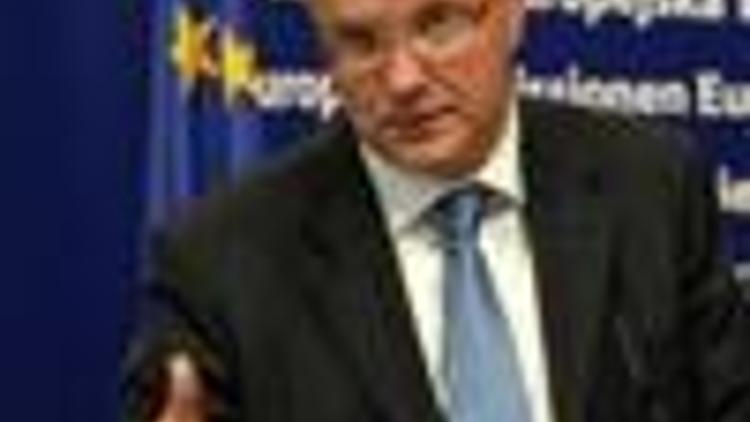Making a case for Turkey’s EU bid
Güncelleme Tarihi:

ISTANBUL - Turkey is central to the future development of the European Union, said a recent report by the Foreign Policy Center, or FPC. The report, "Turkey in Europe: The Economic Case for Turkish Membership of the EU," included several articles from prominent politicians and academics, such as European Union Enlargement Commissioner Olli Rehn; Adam Hug, policy director at the FPC.
Dr. Bahadır Kaleağası, the Turkish Industrialists’ and Businessmen’s Association, or TÜSİAD’s, representative to the EU, with prefaces by British Foreign Secretary David Miliband and Shadow Foreign Secretary William Hague also contributed to the report.
"The eventual decision by existing EU member states to accept or reject Turkey will have significant ramifications for the type of organization it will become," said Hug in the introduction to the report.
"Turkish membership will signify a choice for Europe between becoming an outward-looking Union at peace with its internal diversity that prioritizes economic and security needs of its members, or an insular, almost parochial grouping, searching for an imagined cultural homogeneity," he said.
Rehn said that since the implementation of the Customs Union, trade between the EU and Turkey has almost tripled, as European and Turkish companies took advantage of this large, integrated market. Moreover, the EU has become an important and stable market for Turkish exporters.
Rehn said, "the recent crisis in the Caucasus has highlighted, once again, Turkey’s strategic potential for the secure and regular supply of hydrocarbons to the EU." Turkey remained the only serious alternative route for the Union’s energy supply, he added. "The Commission is encouraging Turkey to engage seriously in discussions, in view of making Nabucco operational as of 2013," reiterating the European Union’s standing invitation to Turkey to join the European Energy Community.
Rehn said Turkey’s emerging industrial economy, information society, dynamic workforce and geographical location were the country’s assets to the EU, adding, deeper economic integration of Turkey in the EU would make both sides stronger. He said Turkey needed to make further efforts on chapters on competition policy, taxation, social policy and employment in order, "to maintain a steady momentum in accession negotiations." Lastly, Rehn called on the Turkish business community to encourage the government to make necessary reforms, adding, "a determined and steady effort toward reform remains the most effective way to convince EU’s citizens that Turkey’s membership will be a win-win situation."
A voice from the business community, Dr. Bahadır Kaleağası, said over the next decade, the Turkish governments’ major challenges would be, "to enhance democratic stability in better implementing EU reforms, to reform the public service to make it more efficient and transparent, and to adopt the country’s economic governance to requirements of post-September 2008 global shocks, adding the business community will closely monitor these developments.
In concluding remarks, Hug said if Turkey completed the required reform processes, "the denial of its right to join (the EU) would be an affront to the principles of fairness that must underpin the EU, and could lead a spurned Turkey to re-orientate itself away from the West, forming new alliances in the Middle East and Central Asia, to the detriment of Europe.
"Failure to grant Turkish accession could be one of the greatest strategic mistakes the EU could inflict upon itself, one that would be hugely harmful to business and undermine European prosperity and security," he said, adding, "the huge commitments Turkey is making cannot be allowed to be undermined by ’low politics’ in European capitals."

